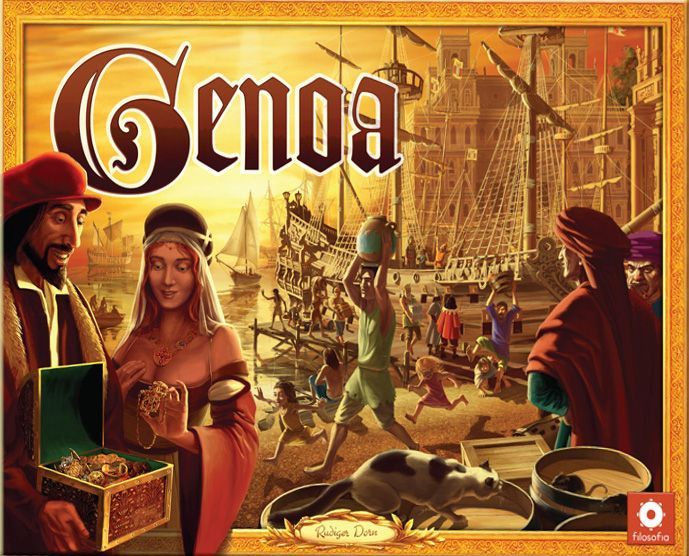Genoa (2001) Board Game
Genoa is a board game designed by Rüdiger Dorn and released in in 2001. It is a negotiation game set in the Renaissance period, where players take on the roles of influential merchants in the city of Genoa. The game involves auction/bidding, bribery, dice rolling, grid movement, and negotiation mechanics.
Game Components of Genoa
How To Setup Genoa
To set up the game, players start by placing the game board in the middle of the table. Each player chooses a token and places it on the starting location on the board. Goods, money, and other tokens are distributed according to the rules. Players receive character cards that define their starting abilities and resources. The action and order cards are shuffled and placed within reach of all players.
Gameplay Mechanics and Game Objective
Player Experience
In **Genoa**, players take on the roles of Renaissance traders navigating the city, acquiring goods, and filling contracts. The game forces constant deal-making, as being stingy can leave you behind. Each player gets equal time in control, thanks to a unique order system, which adds a layer of strategy and tension. The game requires managing unintuitive rules and some bookkeeping, but the payoff is an immersive and challenging experience.
Pros
Cons
Personal Thoughts on Genoa
**Genoa** is ideal for players who enjoy deep negotiation games and are willing to invest the time and effort into mastering complex rules. It’s a game for those who relish the art of deal-making and strategic trading, and it rewards players who can balance short-term gains with long-term strategies. If you’re looking for a game that challenges your negotiation skills and provides a rich, immersive experience, **Genoa** is definitely worth considering. However, it may not be the best fit for casual gamers or those seeking quick, straightforward gameplay.
We are supported by our audience. When you purchase through links on our site, we may earn an affiliate commission, at no extra cost for you. Learn more.

